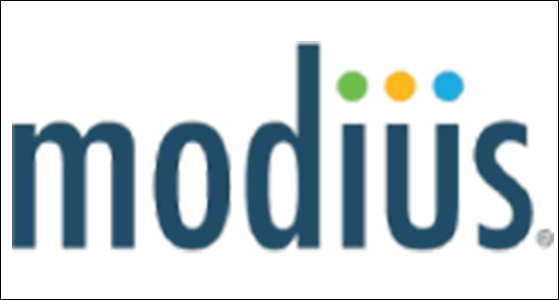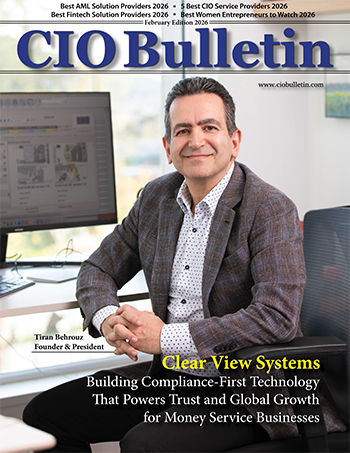CIO Bulletin

Modius® stands at the forefront of data center infrastructure management (DCIM) software, offering a cutting-edge platform that fosters collaboration between IT and facilities teams. The company's philosophy revolves around the belief that informed management decisions hinge on having real-time data on the operational state of data centers. Without this crucial information, decisions become mere guesses, potentially leading to catastrophic outcomes.
Modius OpenData: A Scalable Solution for Unstructured “Big Data”
In pursuit of accurate and insightful data, Modius® has developed OpenData, a groundbreaking, "open" and highly scalable software platform. This platform is designed for the collection of unstructured "big data" emanating from various makes and models of data center assets, processes, and activities in real-time. Real-time data collection forms the bedrock for implementing successful DCIM solutions, as it ensures that decisions are based on actual data rather than speculative guesswork.
Modius® is dedicated to providing businesses with the essential data required for making better decisions and effectively managing availability, capacity, and efficiency throughout their entire data center estate. With OpenData, Modius® offers solutions for:
Modius® is not just a provider of DCIM solutions; it is a catalyst for transformative change in how businesses approach data center management. With OpenData, Modius® empowers organizations to move beyond guesswork and make decisions based on real, actionable data, ultimately enhancing the efficiency and resilience of their data center infrastructure.
Unleashing Scalable and Secure Infrastructure Management Solutions
Modius offers a highly scalable, reliable, and secure solution that seamlessly caters to diverse deployment needs, whether it's at a single location, ten locations, or an expansive network of 10,000 locations. The commitment to equivalent performance across all devices ensures a consistent and reliable experience for users.
Asset Management: The Asset Management module allows for the virtualization of individual assets, providing meticulous control over location, space capacities, changeouts, and more. Optional uplifts to the module enhance its capabilities, ensuring users pay only for the features they need.
Remote Monitoring: Offering operations screens for alarm management, notification, and graphics, the Remote Monitoring module provides essential tools for enhanced operational oversight. Users can opt for uplifts to further augment capabilities based on specific needs.
Network Connectivity Management: Tailored for data-center operators, the Network Connectivity Management Module presents a unique interactive physical diagram tied to asset structure, streamlining network management.
Analytics Management: The Analytics Management module features analytic screens for reporting, charting, and dashboards, leveraging a standard analytics engine. Optional uplifts are available to expand and refine analytical capabilities.
Power Management: Empowering engineering, operations, and IT management teams, the Power Management module facilitates the development of strategies for optimizing and extending power capacity. It includes a "What-if" simulation for failover testing and pre-validation of new equipment loads.
Controls Management: The Controls Management module enables users to issue output commands, providing a seamless interface for remote fixes and controls.
Environmental Management: Focused on zone-level analysis and monitoring of thermal gradients, the Environmental Management module identifies hot and cold spots and enhances cooling capacity. Users can explore uplift options for additional features.
EPMS: The EPMS module simplifies the presentation of mission-critical data, offering a clear and accessible summary with animated one-lines providing real-time visibility of power flow.
Integrated Workflows: The Workflow module ensures the precise adherence to business processes and operational rules for every occurrence without fail, providing an integrated solution.
Planning Management: Monitoring power flow from the building entry to various distribution points, the Planning Management module offers precise visibility, exposing problems and opportunities for improvement.
Client Portal Manager / REST API: The REST API allows operators to securely share data with customers, ensuring compliance with the latest standards. It provides flexibility in integrating with third-party systems, giving users control over shared data.
Utility Manager: The Utility Manager module allows organizations to compare billing to actual data, gaining a detailed understanding of power usage contributing to the bill. It provides tools to identify actions to reduce expenses and control so-called "fixed" utility costs.
Modius, through its OpenData modules, delivers a comprehensive and tailored approach to infrastructure performance management, allowing organizations to scale effortlessly and make informed decisions across their entire operational landscape.
Architectural Ingenuity of OpenData for Global Real-Time Data Collection
OpenData, purpose-built to tackle the challenge of high-volume, real-time data collection across dispersed global sites, demonstrates a unique architectural approach to meet the demands of modern infrastructure management. OpenData's software collectors strategically position themselves at the edge of the network, functioning as meticulous data curators. Their role involves collecting, normalizing, and time-synchronizing data from an array of device types, facility infrastructure, and diverse applications. This decentralized approach ensures that data is captured at its source, providing accuracy and immediacy.
Following the data collection phase, OpenData orchestrates an efficient flow, transferring the amassed information to a centralized database. This central hub serves as the nucleus for further analysis and acts as a pivotal point for the distribution of data to other applications. OpenData seamlessly integrates with API and Web Services, facilitating the swift and secure exchange of information across diverse platforms.
The architecture of the OpenData platform is meticulously crafted to offer a highly scalable solution for monitoring and managing critical infrastructure. Its components work in tandem to ensure not only the reliability of real-time data but also the flexibility to adapt to the diverse and evolving needs of globally dispersed sites. OpenData's architectural design reflects a commitment to efficiency, accuracy, and scalability, making it a robust solution for organizations grappling with the intricacies of real-time data management across a distributed network. The architectural diagram below provides a visual representation of how OpenData's components synergize to deliver a cutting-edge solution for the monitoring and management of critical infrastructure.
Craig Compiano | President
Craig Compiano is an expert business manager and entrepreneur with extensive executive management experience and a track record for developing successful businesses. He brings to the company and the industry, 30 years’ experience in business and systems development, operations, and finance. His prior accomplishments in software development for large commercial and public sector clients during his tenure at Andersen Consulting (now Accenture) led to his current concentration on operational systems development and performance analytics for data centers, and the founding of Modius. Previously as Co-founder and Vice President of Paymap, Inc., Mr. Compiano prototyped, developed, and deployed an Electronic Payment System, that has been widely adopted by the banking industry. He was awarded a patent for this technology.
Mr. Compiano has a BS in Industrial and Systems Engineering from the University of Southern California, and an MBA Finance from UC Berkeley.Top of Form

Insurance and capital markets







